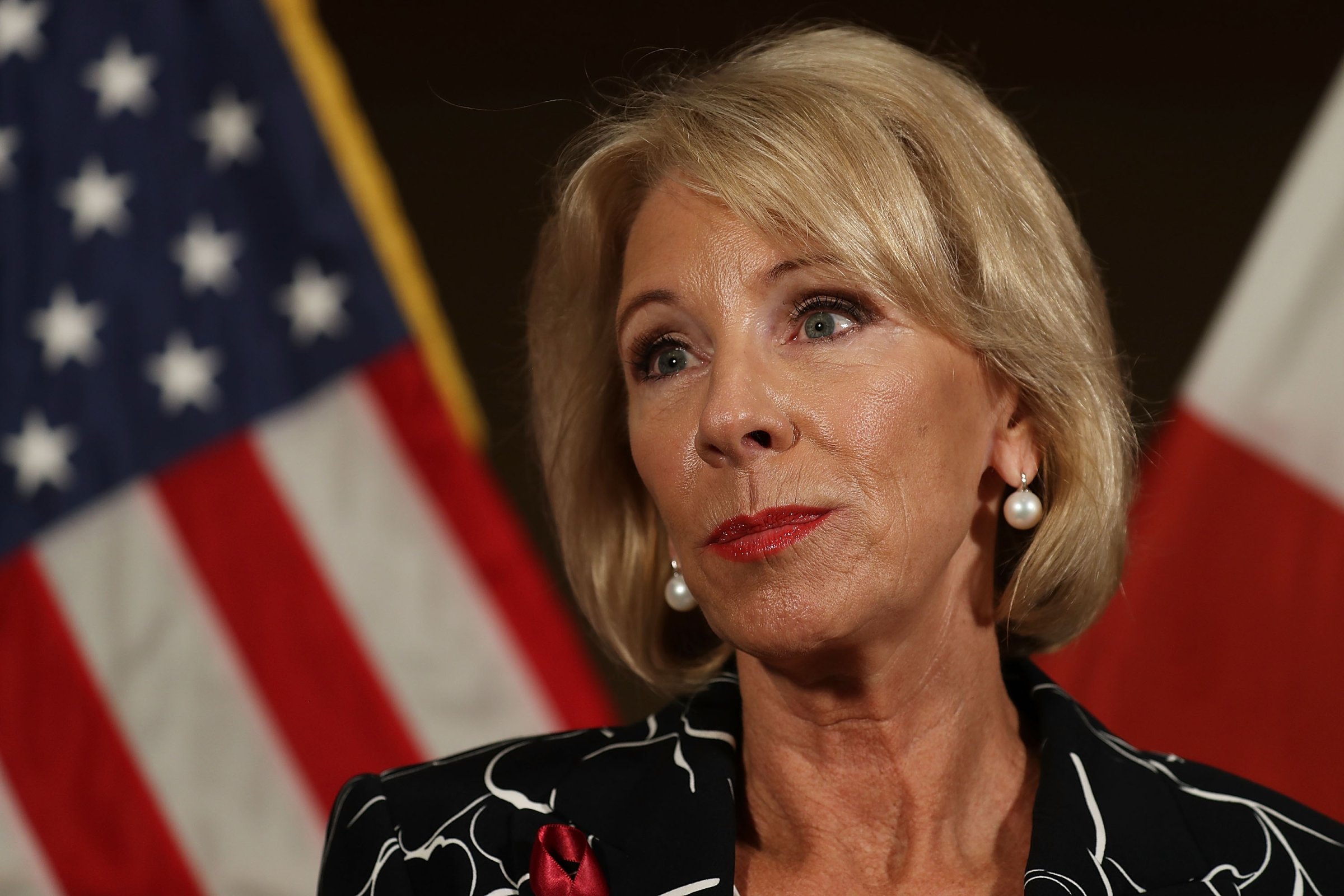
Yvette Colon took out more than $35,000 in student loans and spent two years at a for-profit college to get a certificate that she says is worthless.
Now, she fears even more students could fall into a similar trap after Education Secretary Betsy DeVos reportedly crippled the office charged with investigating the company behind Colon’s now-defunct college, Career Education Corporation, and several other for-profit institutions.
“This school has totally messed up my life,” Colon said. “I can’t do anything. I can’t continue my education. I can’t continue to go forward in my career.” Career Education Corporation did not respond to a request for comment.
Career Education Corporation is one of the companies no longer being investigated by the U.S. Education Department after members of an enforcement office tasked with investigating abuses by for-profit colleges were instructed to focus on other issues, the New York Times reported this week, citing current and former employees. Meanwhile, former executives and consultants from those for-profit institutions have been hired as top advisers to the Education Department under DeVos.
The change is the latest example of DeVos scaling back regulations and investigations that were launched by the department under President Barack Obama, faulting the prior administration for government overreach. Last year, DeVos suspended Obama-era protections for students who borrow money to attend for-profit colleges and are later unable to find employment — known as the borrower defense to repayment and gainful employment rules. DeVos said they created a “muddled process that’s unfair to students and schools, and puts taxpayers on the hook for significant costs.”
Colon is just one of thousands of students who say they were defrauded by for-profit colleges, wasting years of their time and taking on mountains of debt to attend schools that provide little in return. In 2006, Colon enrolled in Sanford-Brown Institute, hoping to change careers from a medical assistant at a private practice to a cardiovascular sonographer, a job that would allow her to work directly with patients. She graduated in 2008 with a certificate in cardiovascular sonography, only to find out that the school lacked the accreditation required for her to take the necessary licensing exam or transfer her credits to a community college.
Career Education Corporation started shutting down Sanford-Brown campuses in 2015, citing a “challenging regulatory environment” amid new rules imposed by the Obama Administration.
Liz Hill, a spokesperson for the Education Department, said all staff changes have resulted from “routine attrition” and redirection to “other critical priorities.” She denied that the department’s oversight efforts had been curtailed.
“Conducting investigations is but one way the investigations team contributes to the Department’s broad effort to provide oversight” to institutions of higher education, Hill said. “Staff within the Enforcement Office have been redeployed to help process the backlog of borrower defense claims, a natural extension of the responsibilities of the Enforcement Office.”
But students who are still hoping to receive loan forgiveness worry that the lack of broad investigations into the for-profit college industry will allow those schools to continue enrolling students who could later join the long list of people filing borrower defense claims.
“It’s just disgraceful,” said Colon, who filed a lawsuit last year against DeVos and other entities that hold the loans she took out to attend the Sanford-Brown.
“Those people who are in those high positions — they need to look at themselves. How can you put your head on the pillow at night and say you’re doing the right thing, you know, when you have all these other people going to bed and worrying that they have to pay — how am I going to pay that loan, how am I going to pay my rent, how am I going to pay this?” said Colon, 56, who is now a surgical coordinator in a private practice and has been unable to return to school. “I don’t know how you can sleep at night.”
Democratic attorneys general in several states have also sued DeVos over the department’s handling of student loan protections. The Times report drew added scrutiny.
“I think it’s really troubling, not just from a personal perspective of having worked to create this new office, but mainly for these students who are being harmed by these schools,” said Aaron Ament, president of the National Student Legal Defense Network who was previously chief of staff for the Department of Education’s Office of the General Counsel under Obama.
“Now it’s really sending a signal to them that there’s not really a cop on the beat anymore,” he said. “You can kind of get away with past predatory actions, and that’s a really dangerous message.”
More Must-Reads from TIME
- Donald Trump Is TIME's 2024 Person of the Year
- Why We Chose Trump as Person of the Year
- Is Intermittent Fasting Good or Bad for You?
- The 100 Must-Read Books of 2024
- The 20 Best Christmas TV Episodes
- Column: If Optimism Feels Ridiculous Now, Try Hope
- The Future of Climate Action Is Trade Policy
- Merle Bombardieri Is Helping People Make the Baby Decision
Write to Katie Reilly at Katie.Reilly@time.com